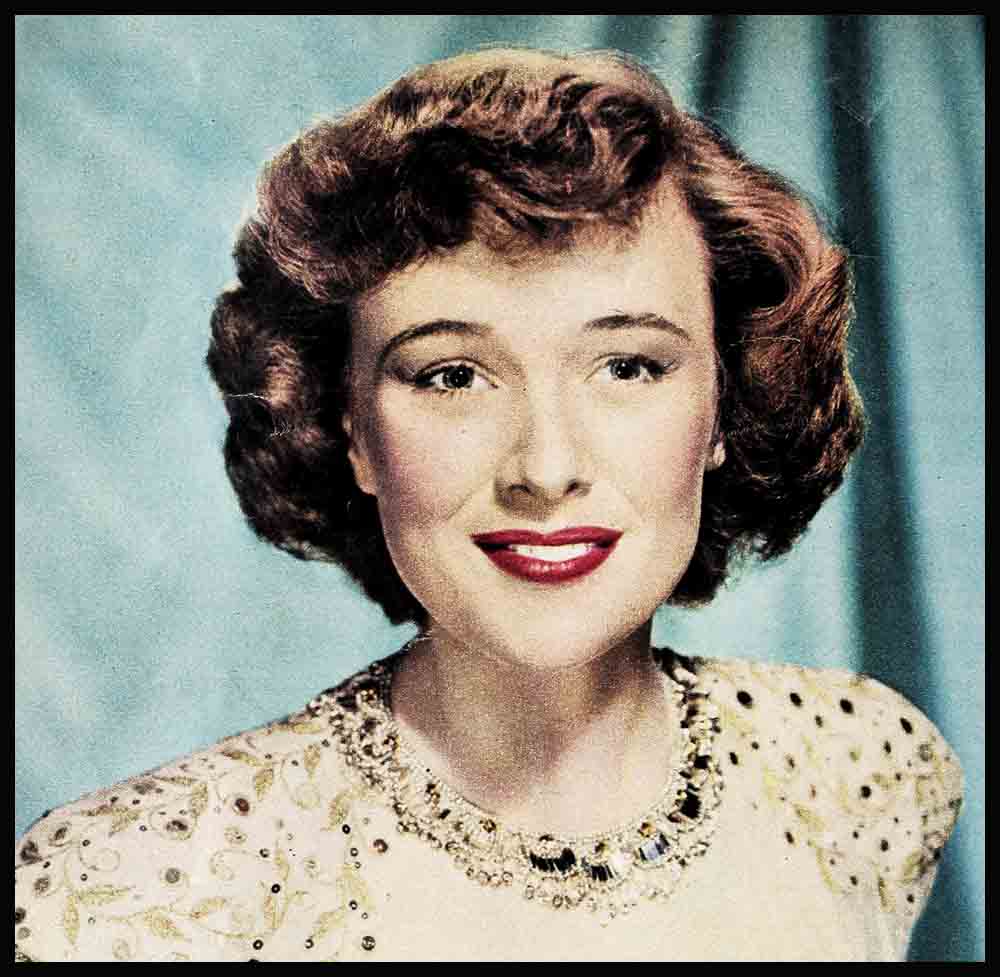
That Thaxter Girl
The first time you see Phyllis Thaxter, something in her warm and vibrant personality will attract you. The second time, you will be amazed that behind those smiling blue eyes, the pert little nose, the firm chin’ and the crop of light brown hair, there is a crisp intellect and unbelievable determination, practically bordering on stubbornness.
She is a lovely girl, tall and slim, and her movements are those of a trained ballet dancer. Her voice is soft. She is emotional and has definite opinions on anything ranging from politics to what she wants and opes for in the future.
Until a few months ago, Phyllis’ whole life centered around arriving at the top as a big dramatic actress. At the present moment, she keeps an eye on the mailbox and tears the phone off the hook before the second ring has sounded, all because she is in love, terribly in love with her new pilot husband.
The first time Phyllis saw “Thirty Seconds Over Tokyo,” where she plays Ellen Lawson, the wife of Major Ted W. Lawson, hero of the Tokyo raid, she sat as quietly as a mouse in the theater out at Glendale where the sneak was being run. She lived the whole story with the audience and, like the rest, had tears in her eyes when the show was over, That evening, at that moment, she had become someone different: A screen personality. You should have seen how she was mobbed when she left the theater.
Phyllis didn’t understand that her performance was so outstanding; but both the director Mervyn LeRoy and producer Sam Zimbalist, who were here, could do nothing but shake per slim little hand because they were too moved by her performance to talk.
The day we had our visit she was sitting, with her legs curled under her, in a big chain. She is twenty-two and she believes her life has been: “Just like most American girls. Happy, gay, very carefree, and I am grateful for that.”
Suddenly she smiled, that shy, warm little smile of hers and said, “You should have known me when I went to New York the first time. I was just about seventeen and all I wanted was a part. Any part. If nothing else, to walk across the stage. I must have looked rather funny to the producers I went to see,” she said and smiled again, “because I wore a navy blue coat with brass buttons and a small navy hat. I’m sure I looked about fourteen years old. But the worst thing was that I was scared to death. I would stand for hours in a corner of a producer’s office, too scared even to ask for a part; and many are the times I sneaked out of the door again.
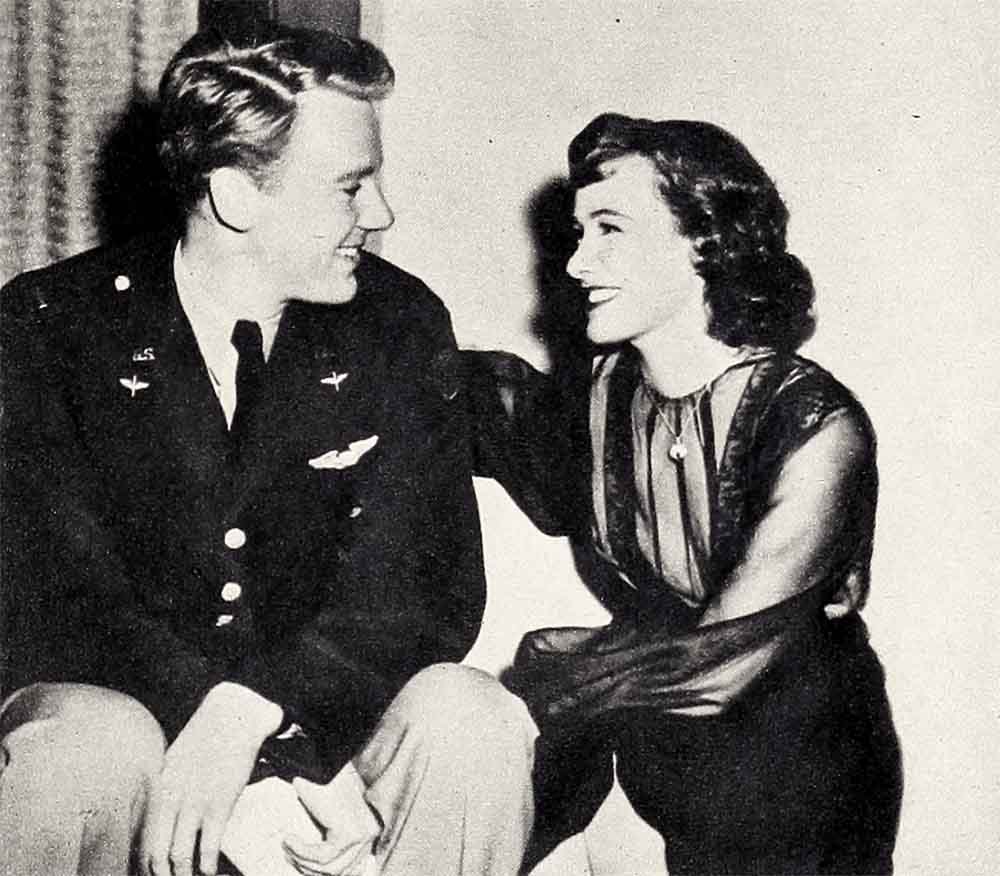
“I didn’t have anything to do, so I decided to go back to Portland, Maine, and visit my parents. But somehow, when I was at the station and the train was pulling in, I had a hunch.” Again Phyllis smiled, a small apologetic smile, because she believes strongly in hunches and has followed them all her life.
“So I went back to the Rehearsal Club, where I was living, and practically dropped when I saw a note on the bulletin board asking me to call the Theatre Guild. I did and learned that Lynn Fontanne and Alfred Lunt wanted someone to play the part of a maid in ‘There Shall Be No Night.’
“I went over to Miss Fontanne’s apartment, and the minute I walked in she said to her husband, ‘Doesn’t she look just like an actress, Alfred?’
“Nothing could have boosted my morale more than those few words. I read the part and though I actually wasn’t the type for it, I got it because Miss Fontanne said she would like to have me in her company. I was both the maid and the understudy for the ingenue.
“There is nobody in the business I feel so grateful towards as the Lunts. When! ever I have needed encouragement or help, Miss Fontanne has given it to me. Many are the evenings she has sat up with , me until late into the night to teach me a new part.”
She went on: “My big chance came when Miss Rose Franken was trying to find a girl to play Claudia in Chicago. The day I went to see her was cold and rainy. The first thing I noticed was a huge living room with a white rug from wall to wall, and me dripping wet. Then Miss Franken came into the room, looked me up and down, and said, ‘Put your hair on top of your head and take your shoes off.’ I obeyed her, feeling as young and naive as I probably looked. Miss Franken liked the way I read my lines and asked producer John Golden to come over. And I read the script again. Mr. Golden said, ‘How can I tell if she can act? But she may be able to. Let’s give her a chance.’
“The chance consisted of going with Miss Franken to her home in Connecticut, and studying with her for a week. Jennifer Jones was up there at the same time. It was decided that Dorothy McGuire, who was playing in the New York company, should give me a chance to act the part on a Wednesday matinee.
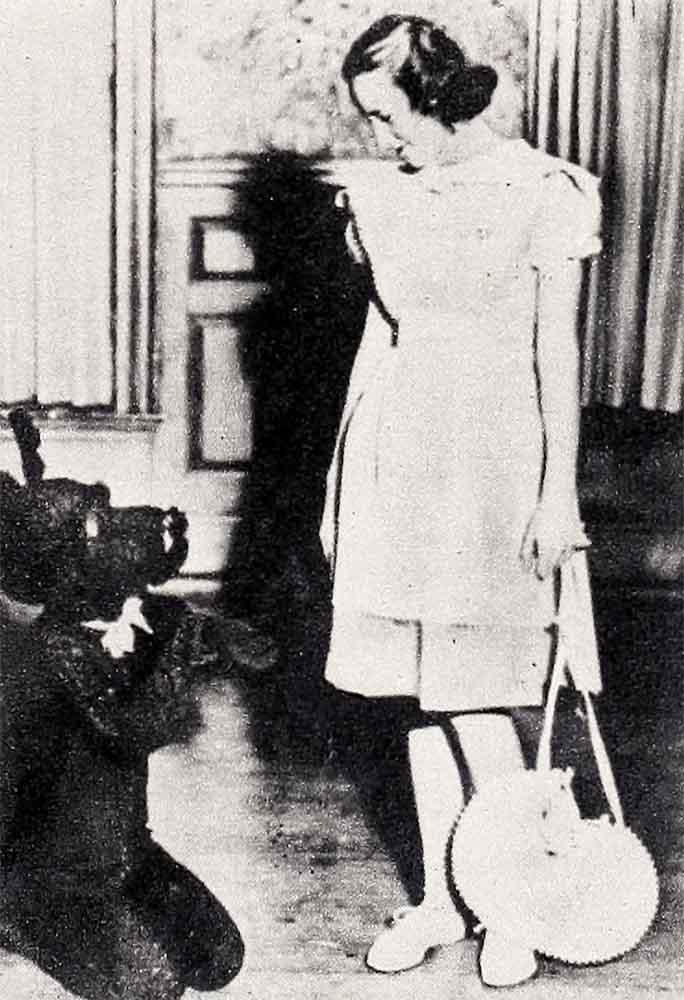
“Tuesday I went to New York for the dress rehearsal, and that night Mother said that I kept on repeating in my sleep ‘I can do it, I can do it.’ But Wednesday I was panic-stricken. When I went on the stage, my throat was so dry that I was sure the voice couldn’t get through; but Donald Cook, who played my husband, was absolutely wonderful to me. He guided me around the stage till I warmed up and then suddenly I got going. After the first act John Golden came to my dressing room and said, ‘Don’t worry, you have the part.’
“When the company got to Hollywood I tested for ‘Kismet,’ but I felt all wrong and decided that Hollywood wasn’t my meat.”
The issue was closed so far as Phyllis was concerned and might have remained so if producer Sam Zimbalist hadn’t just met Ellen Lawson, wife of Major Ted W. Lawson, hero of the Tokyo raid.
“I want a nice American girl, clean-cut, with character, backbone and fibre to play her,” Zimbalist said. “She’s got to have a new face.”
After an exhaustive search he stumbled on the test Phyllis had made and yelled, “That’s the girl.” By then Phyllis was in Sacramento with the company of “Claudia,” and Mr. Zimbalist called her long distance. But Phyllis was dubious. “I’ll send you the script to read,” the producer begged.
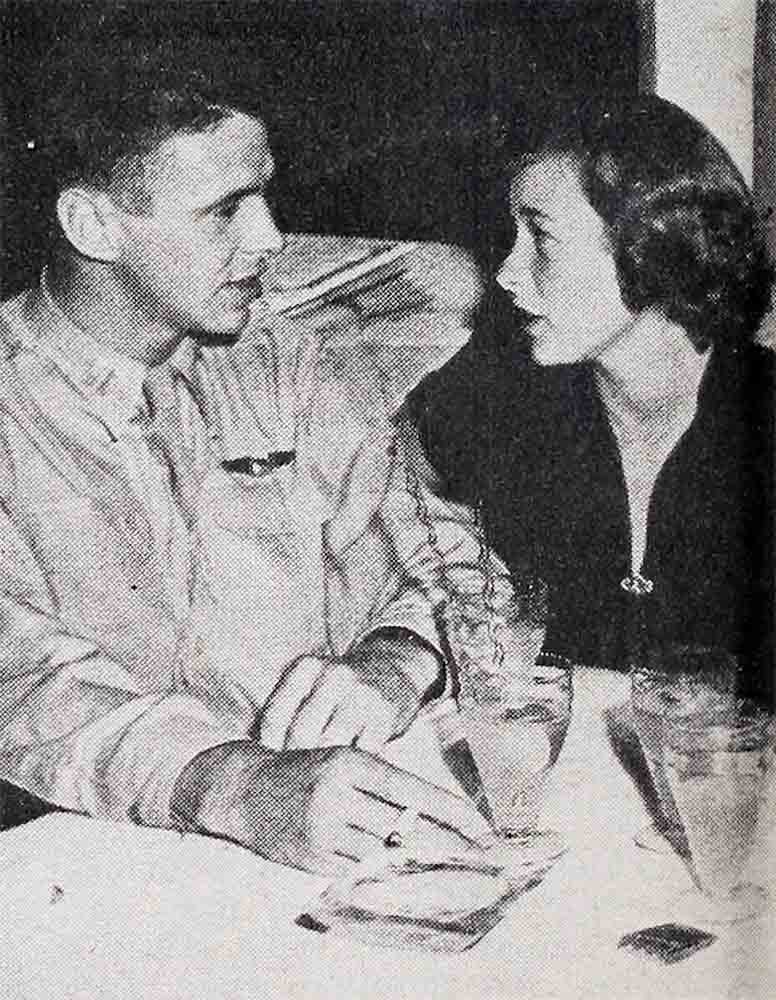
Phyllis read it while tears streamed down her face. “It’s the most beautiful script I have ever read,” she said and straightway made plans for Hollywood.
Phyllis started acting at the age of seven when she played the part of Joseph in a Biblical play. “From then on,” she said, “I wanted to be an actress.” She came by it naturally. Her mother, before she married Phyllis’s father, a Supreme Court judge in Maine, was with the Ben Greet Players.
“Mother says I always loved to dramatize myself,” Phyllis laughed. “That I was a cry baby and once when she scolded me for it, I said, ‘But I love to cry—crying is my favorite thing.’ One day I was crying like mad and my brother Sidney said, ‘Phyllis, stop that crying! How can I study with you making all that noise?’ He spoke so sharply that it scared me and I stopped. In about five minutes I looked at him and said, Sidney Thaxter, you’re not studying at all. You’re just reading a magazine. I could have been crying all that time.’ ”
When Phyllis was about twelve she played Dorothy in “The Wizard Of Oz” and her sister Marie Louise played Toto, Dorothy’s dog. They played two nights and a matinee to standing room only. It was then Phyllis felt she had really arrived and that there could be no life for her but the theater.
Her first play in New York was “What A Life.” She played one of the high school kids and understudied. “I got $15.00 a week and played it for a year,” she said proudly. “My part was so small that when my parents went to see me, a man in front of them stood up to take off his coat just as I came on, and by the time he sat down, I was off and they had missed me completely.”
But the little Thaxter’s favorite subject these days is her new husband Capt. James Aubrey Jr. It was love from the beginning—and she met him, she says, “beause I played a hunch. You see, I had mother date when my friends called and asked me to join them at the Cock ’n’ Bull to meet a young flyer who had just returned from Alaska. I turned them down, then got to thinking it over. So about six-thirty I walked into the restaurant on the Sunset Strip. My blind date had his back toward me when I walked so all I could see was a pair of broad shoulders and some closely cropped, thick blond hair. We were introduced and from then on I don’t remember very much, except that we kept looking into each other’s eyes and it seemed the most natural thing in the world.”
Two weeks later Phyllis and Jimmy went into a jewelry store on Beverly Drive and Jimmy said, “We want to look at rings.”
“What sort of rings?” the jeweler asked.
Slightly red around the ears, Jimmy answered, “Engagement rings.”
The jeweler soon had the long counter leaming with diamonds of all sizes.
“I hadn’t any idea whether Jimmy could afford one that cost five dollars or five thousand,” Phyllis said, “so I chose one with smaller stones—sapphires and diamonds and oh, so lovely!”
From then on the romance was hectic. They wanted to get married before he went back overseas. Then they decided their marriage wouldn’t have a fair start. But Phyllis was desolate when Jimmy’s leave was up. She’d sit in her charming little house, play their favorite records, among them “I Love You,” and gaze at the photograph of the strapping S twenty-five-year-old flyer with the flashing white teeth and that easy-going, lanky American charm. “I’m sure I’ll see him again before he goes back. I just know I will,” she kept saying.
Little did she realize how soon her ı hunch was to prove true. It was when she stopped off at Chicago on a trip to the East to meet her prospective mother and father-in-law for the first time. There standing on the platform as the train I pulled in was the light of her life. For Jimmy had secured permission to fly on to Chicago.

There are, you see, advantages to marrying a pilot.
Then he was gone again. But a second miracle befell. He bobbed up again in Hollywood and this time the young lovers decided fate must not have given them a second chance in vain. So on the evening of November 16 at a little church in Beverly Hills Phyllis Thaxter and Capt. James T. Aubrey Jr. became man and wife.
She wore a simple orchid-colored woolen suit and a little hat to match. Her longtime friend and dramatic coach, Sydney Greenstreet, gave her away.
Afterward Phyllis said, “You know, this is the first time I’ve really ever listened to the marriage ceremony and known how very beautiful it is.”
There was a reception at the house of Mrs. Frank Morgan who introduced the couple and a short but precious honeymoon.
Now Jimmy is back piloting his plane and Phyllis is back before the cameras. In her heart she is just Jimmy’s wife, but what the audience will see will be a female Dr. Jekyll and Mr. Hyde in her t next picture, “Alter Ego.”
There are two main things Phyllis wants out of the future. First, to be a good wife and mother and, second, to be a great actress. The latter she has I already proven, for she has what so few actresses have: Warmth of personality which carries over on the screen and makes the audience love her. She is a sincere and extremely capable young actress. Not a glamour girl, but a clean-cut American youngster, who grips your heartstrings, and not just for a moment.
As for her goal to be a good wife and mother, everyone who has ever met the little Yankee from way down East is wishing her the best of luck!
THE END
It is a quote. PHOTOPLAY MAGAZINE MARCH 1945


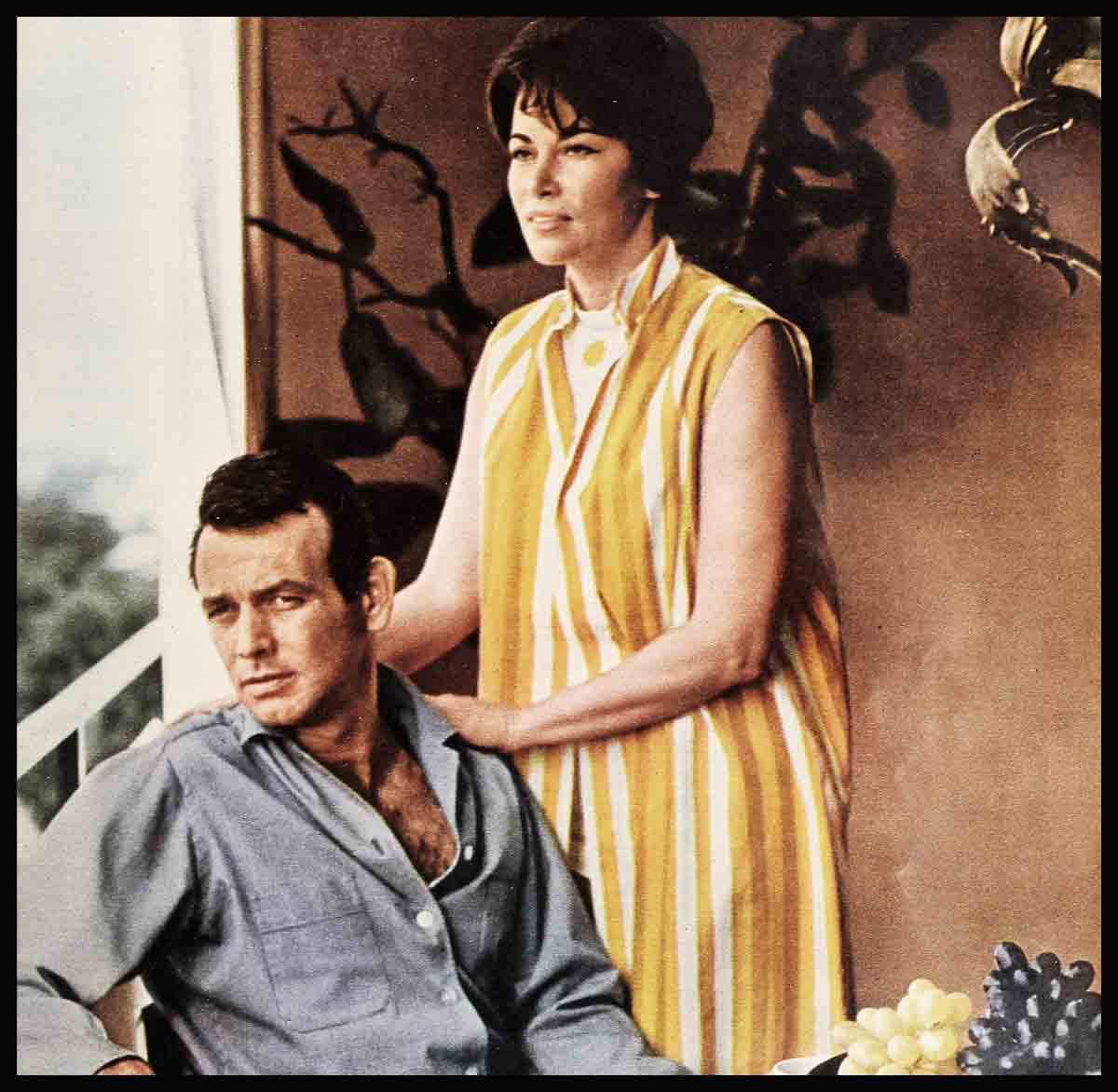

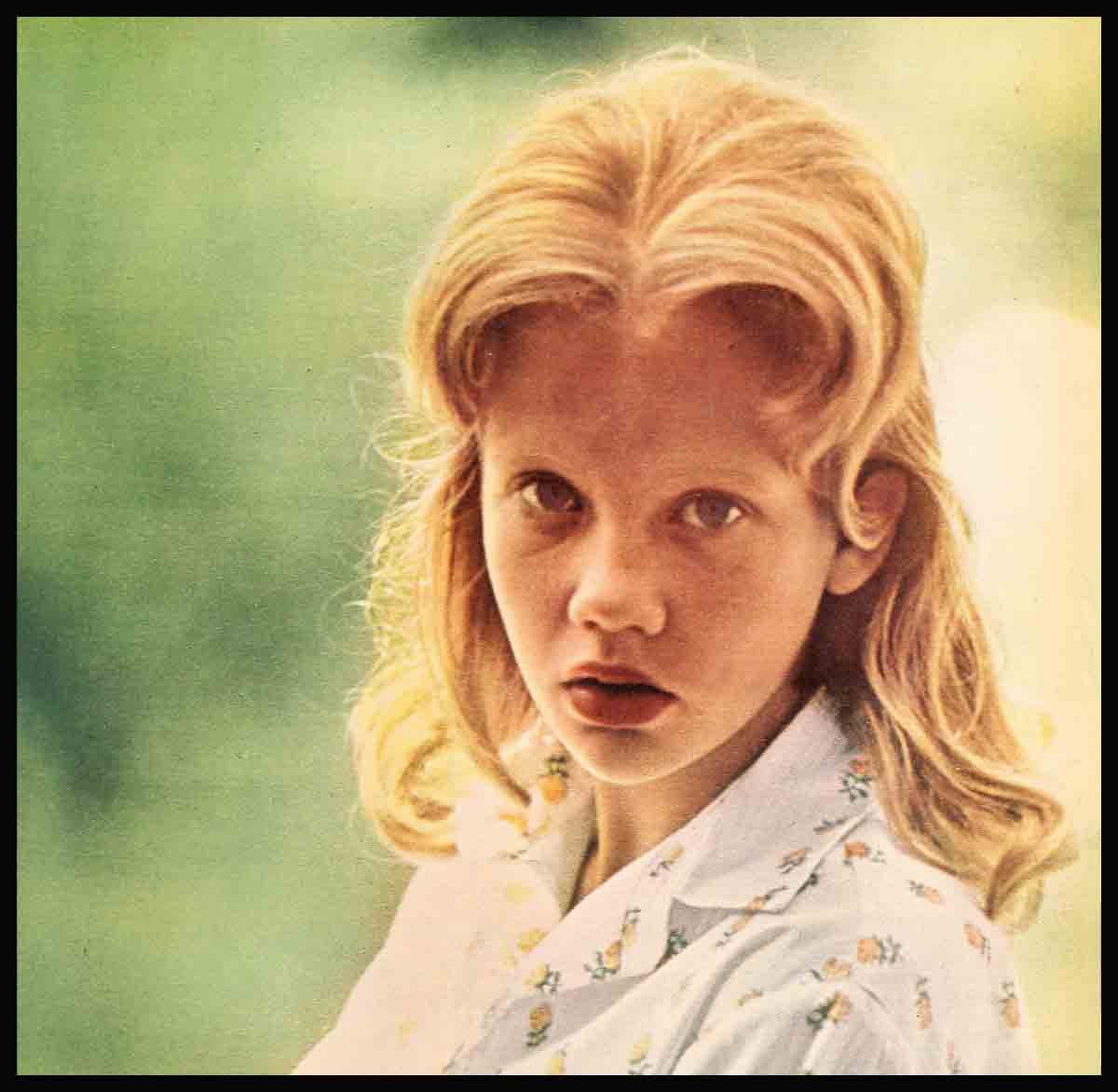
No Comments